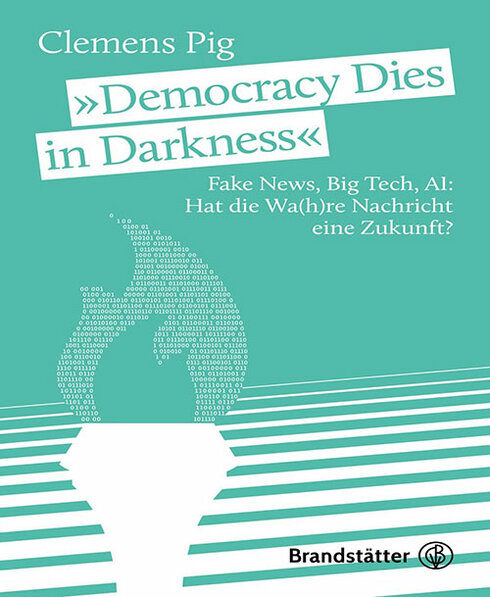The Information Society of Tomorrow: Fake News, Big Tech, AI: Does Real News have a Future?
Finding an answer to this question is not easy in the face of increasing fake news, news fatigue and rapid technological development. In the fight against disinformation, a “European NewsTech Alliance” could provide a remedy, where reliable information provides the input for joint Kl applications.
We need to emphasize the role of independent reporting for democracy much more intensively than before. Up to two thirds of all daily mass media information can be traced back directly or indirectly to news agencies. It is therefore all the more alarming that only a small proportion of them worldwide are state-independent. However, it is precisely these agencies “at the top of the information pyramid” that maintain the free flow of information and act as a “coolant for the polarized, overheated opinion markets of social networks” with their fact-based journalism.
Nowadays, it is more important than ever before to learn to distinguish between what is a properly researched message and what is not. Technical developments such as ChatGPT are fueling this massively once again. A kind of invisible match is currently taking place over the international air sovereignty of global news streams. The Chinese state news agency alone has more employees than all independent European news agencies have together.
The Role of Independent News Agencies in Democracy
The first step towards an autocratic system is usually to turn off the lights on the free media. We should be highly sensitized to this and emphasize the role of independent reporting for democracy.
However, only very few news agencies can finance themselves with their core business – the provision of reliable information. Diversification is therefore unavoidable. With their services, sustainably successful agencies must themselves become a (technologically) integral part of media production. In this context, the added value of collaboration should be particularly emphasized, a kind of solidarity against the challenges of the time, as the development and operation of new IT services are expensive and complex.

A European NewsTech Alliance: An Opportunity for Collaboration
An important vision here is the creation of a common space where news organizations and media houses can train artificial intelligence together and learn to use it for their respective requirements. Even if generative AI cannot currently select and write journalistic texts or news on its own without further human review, the AI technology currently available is probably just a foretaste of a possible to very likely revolution in the analysis, processing and creation of texts, images, and news.
AI is both a huge threat and a huge opportunity. Keeping our hands off it would probably be the wrong approach. We must not let the topic be taken out of our hands. We need to become experts in this field ourselves and apply the value system of independent news agencies to this technology.
We need a European technology platform that makes the intelligence of newsrooms usable and shareable and comprehensively trains artificial intelligence using verified information. This would create new services and business models to strengthen the ecosystem economically and develop new IT applications. I am therefore very consciously in favor of a “European NewsTech Alliance” with which we can successfully fight against the dismantling of the fourth pillar of democracy in our turbulent times of media upheaval.
Last year, I published a book on this topic with Brandstätter Verlag entitled “Democracy Dies in Darkness”. I borrowed the title from the long-established “Washington Post” which has used this slogan under its logo for several years.

President of EANA – European Alliance of News Agencies
Clemens Pig’s entrepreneurial and academic specialisms include digital transformation and innovation management in agency journalism as well as the strategic business development of news agencies in the cooperative media economy.


